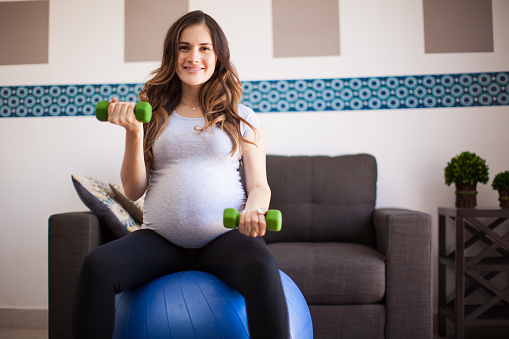

Running, electrostimulation and crossfit are popular sports to help you keep in shape. But during pregnancy you will probably want to choose a less physically demanding fitness regime.
Exercise during pregnancy makes you feel better, relieves the discomfort of the early months, helps you sleep, improves your circulation and expands your breathing capacity. It also keeps your weight down, prepares your body and muscle tone for the birth itself and helps you regain your normal weight after giving birth. Unless the doctor specifically tells you to avoid sports while pregnant, moderate exercise is good for both you and the baby.
This post looks at some types of the exercise that are particularly effective during pregnancy, providing you make sure that you drink enough to stay well hydrated.
- Yoga and Pilates: If you avoid postures that put pressure on the stomach, yoga and pilates can be a great way to prevent back pain and maintain good posture. They also promote relaxation.
- Exercising in water: This is an ideal way of exercising as you feel lighter under water, which makes it easier to do some exercises, and also reduces the risk of injury. Swimming a few laps, synchronised swimming or light water aerobics during pregnancy, help you relax and stay in shape at the same time, increase muscle tone in your back and improve your posture.
- Walking: Often when we walk around, we do so without thinking, unaware of what each step is doing for us. Going for walks is a must, from the beginning to the end of the pregnancy. It is a low impact, aerobic exercise that helps prevent circulation problems, reduces swelling in you legs and feet, relieves constipation and even helps control weight.
- Cycling: Riding a bike helps tone your legs, relaxes you, prevents you from gaining too much weight and improves circulation. However, you should stop cycling before the third trimester as your larger abdomen may make you lose your balance. So if you want to continue riding a bike in the later stages of your pregnancy, do so at home with an exercise bike.
You should do the exercise that your body is used to. For example, if you usually do high impact sports or go running, skiing or spinning, you should reduce the intensity of your exercise. You should always speak to your doctor before doing any type of physical activity. If you are exercising outdoors, you should make sure you drink plenty of water to stay hydrated and protect yourself properly from the sun.
In the last three months of pregnancy, you will gain quite a bit of weight and you will probably have to reduce the amount of exercise you do. That’s when walking becomes particularly important as you can do that almost up until the moment your baby is born. Even after the 38th week it’s safe and promotes more natural labour.
Are you up for it?




1 Comment
Has the author of this post ever actually done synchronized swimming? It is not even close to being on the same level as “swimming a few laps” or “light water aerobics”.